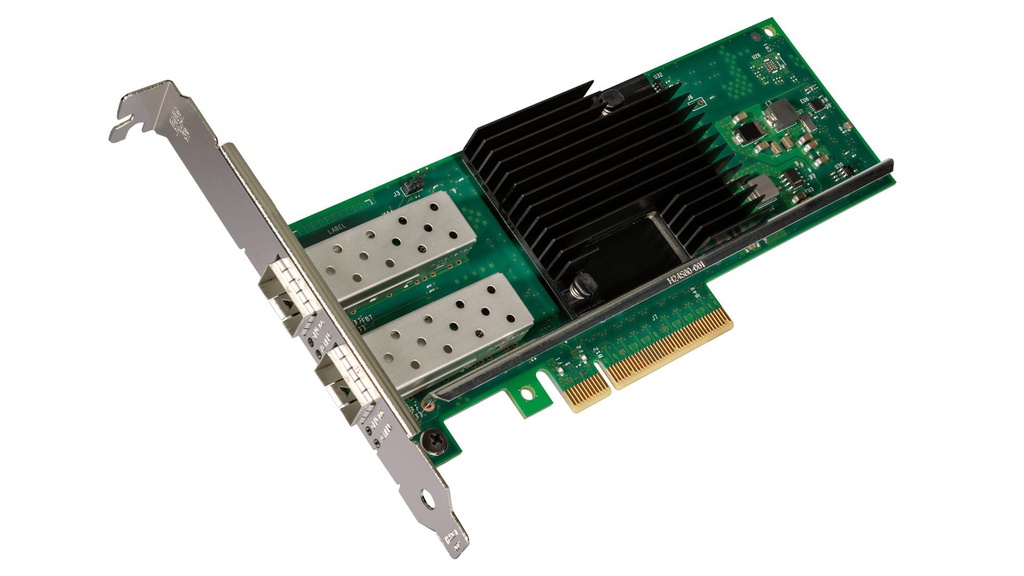Intel Ethernet Converged Network Adapter X710-DA2, retail bulk (X710DA2BLK)
Manufacturier:
INTEL
Product Number:X710DA2BLK
See the product sheet on the manufacturer's website.Intel X710DA2BLK, Internal, Wired, PCI Express, Fiber, 10000 Mbit/s, Black, Green, Stainless steel
Intel X710DA2BLK. Internal. Connectivity technology: Wired, Host interface: PCI Express, Interface: Fiber. Maximum data transfer rate: 10000 Mbit/s. Product colour: Black, Green, Stainless steel
Flexible Port Partitioning
Flexible Port Partitioning (FPP) technology utilizes industry standard PCI SIG SR-IOV to efficiently divide your physical Ethernet device into multiple virtual devices, providing Quality of Service by ensuring each process is assigned to a Virtual Function and is provided a fair share of the bandwidth.
Virtual Machine Device Queues (VMDq)
Virtual Machine Device Queues (VMDq) is a technology designed to offload some of the switching done in the VMM (Virtual Machine Monitor) to networking hardware specifically designed for this function. VMDq drastically reduces overhead associated with I/O switching in the VMM which greatly improves throughput and overall system performance
PCI-SIG* SR-IOV Capable
Single-Root I/O Virtualization (SR-IOV) involves natively (directly) sharing a single I/O resource between multiple virtual machines. SR-IOV provides a mechanism by which a Single Root Function (for example a single Ethernet Port) can appear to be multiple separate physical devices.
Intel® Ethernet Power Management
Intel® Ethernet Power Management Technology provides solutions to common power management approaches by reducing idle power, reducing capacity and power as a function of demand, operating at maximum energy efficiency whenever possible, and enabling functionality only when needed.
Flexible Port Partitioning
Flexible Port Partitioning (FPP) technology utilizes industry standard PCI SIG SR-IOV to efficiently divide your physical Ethernet device into multiple virtual devices, providing Quality of Service by ensuring each process is assigned to a Virtual Function and is provided a fair share of the bandwidth.
Virtual Machine Device Queues (VMDq)
Virtual Machine Device Queues (VMDq) is a technology designed to offload some of the switching done in the VMM (Virtual Machine Monitor) to networking hardware specifically designed for this function. VMDq drastically reduces overhead associated with I/O switching in the VMM which greatly improves throughput and overall system performance
PCI-SIG* SR-IOV Capable
Single-Root I/O Virtualization (SR-IOV) involves natively (directly) sharing a single I/O resource between multiple virtual machines. SR-IOV provides a mechanism by which a Single Root Function (for example a single Ethernet Port) can appear to be multiple separate physical devices.
Intel® Ethernet Power Management
Intel® Ethernet Power Management Technology provides solutions to common power management approaches by reducing idle power, reducing capacity and power as a function of demand, operating at maximum energy efficiency whenever possible, and enabling functionality only when needed.
This is a preview of the recently viewed products by the user.
Once the user has seen at least one product this snippet will be visible.
Once the user has seen at least one product this snippet will be visible.



